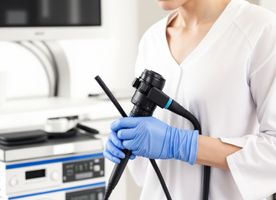Anal Fistula Surgery in Austria
Search and Compare the Best Clinics and Doctors at the Lowest Prices for Anal Fistula Surgery in Austria






Anal Fistula Surgery at Landeskrankenhaus Villach in Villach, Austria
Our partner clinics in are accredited by the following associations






































































































































No Time?
Tell us what you're looking for and we'll reach out to the top clinics all at once
WHY US?






































































































































No Time?
Tell us what you're looking for and we'll reach out to the top clinics all at once
What does a Anal Fistula Surgery Procedure Involve?
There are several different procedures to treat an anal fistula and the surgery will be performed by a colon or rectal surgeon. The goal of the surgery is to heal the fistula while avoiding damage to the sphincter muscles, which could result in loss of bowel control. Your surgeon will discuss the best option suitable for you. It usually depends on where the fistula is and whether it is a single channel or branches off in different directions. To help determine the best treatment for you, you may need to have an initial examination of the area. Anal fistula surgery is performed under local or general anesthetic.
- Fistulotomy is the most common type of surgery to treat an anal fistula. During this procedure, your surgeon will make an incision along the whole length of the fistula in order to open it up so it can heal as a flat scar. Although it is the most effective treatment for many anal fistulas, it is only suitable for fistulas that do not pass through much of the sphincter muscles. Sometimes, your surgeon may have to cut a small portion of anal sphincter muscles. When they do it, they will make an attempt to reduce the risk of incontinence. If the risk of incontinence is too high, your surgeon may recommend another procedure.
- Seton techniques are performed when your fistula passes through a significant portion of anal sphincter muscles. With this technique, your surgeon will insert a Seton. A Seton is a piece of surgical thread that is left in the fistula for several weeks to keep it open, which will allow it to drain and to help it heal without cutting the sphincter muscles. A loose Seton will allow the fistula to drain but will not cure it. To cure the fistula, your surgeon may use tighter Setons to cut through the fistula slowly.
- Advancement flap procedure may be considered by your surgeon if your fistula passes through anal sphincter muscles. During this procedure, your doctor will cut or scrape out the fistula. Then they will cover the hole where it entered the bowel with a flap of tissue taken from inside the rectum. However, this procedure has a lower success rate than a fistulotomy.
- LIFT procedure, or the ligation of the inter-sphincteric fistula tract, is a treatment for fistulas that pass through the anal sphincter muscles. Your surgeon will make a cut on the skin above the fistula to open it up and the sphincter muscles are moved apart. Then, the fistula is sealed at both ends and cut open so it lies flat. This is one of the newest procedures to treat an anal fistula.
How Long Should I Stay in Austria for a Anal Fistula Surgery Procedure?
After the surgery, you should be able to go home on the same day or you will need to stay in the hospital for one night. However, you may need to stay in Austria for 10 to 14 days, because you will need to allow some time for the initial recovery and to attend follow-up checkups. This period is critical for monitoring your recovery, ensuring that the wound is healing correctly, and addressing any potential complications at the earliest.
What's the Recovery Time for Anal Fistula Surgery Procedures in Austria?
The recovery period may vary from patient to patient. Although superficial anal fistula can heal faster, it still will take several months for a full recovery. Within one or two hours after the surgery, your surgeon will encourage you to get up and walk around. However, you will need to rest for the first 10 days and walk as little as possible to help the wound to heal.
Expect to pass feces within one to three days, which may feel uncomfortable at first and a small amount of bleeding is possible. You can take a painkiller around 20 minutes before going to the toilet to help with the uncomfortable feeling. The wounds should heal within six weeks. You may get back to work after 2 weeks when you feel comfortable enough.
What sort of Aftercare is Required for Anal Fistula Surgery Procedures in Austria?
Your surgeon will likely give you advice and post-operative instructions. You will need to make sure that you follow the instructions strictly for a quicker recovery. You must keep the wound clean and dry so it can heal well. If your wound is bleeding, you can use a dressing or gauze pad over the wound. It might be helpful for you to use a sanitary pad to protect your clothes.
To help ease the pain and keep your wound clean, you will be advised to have warm baths each day. However, do not add anything to the bathwater to avoid irritating the wound. Your surgeon may prescribe laxative medicine to help keep your stool soft so that it is less painful for you to go to the toilet.
What's the Success Rate of Anal Fistula Surgery Procedures in Austria?
The success rate of anal fistula surgery is extremely high, with many patients experiencing complete relief from symptoms and a significantly enhanced quality of life after the surgical intervention. However, the exact rate may differ based on the surgical method employed and the complexity of the fistula. Though the treatment aims at healing the fistula completely and maintaining normal sphincter function, recurrences are possible in some cases. Regular follow-ups and appropriate aftercare can significantly minimize the chances of recurrence.
Are there Alternatives to Anal Fistula Surgery Procedures in Austria?
Alternatives to Anal Fistula Surgery could be considered, depending on the nature of the fistula and the patient's overall health condition. The decision to opt for an alternative treatment would primarily be based on the surgeon's professional assessment.
Note that an anal fistula cannot be treated without surgery because only very few anal fistulas heal by themselves. Without surgery, the symptoms may get worse. The only non-surgical option to treat anal fistula is fibrin glue, the surgeon injects special glue into the fistula. The glue helps seal the fistula and encourages it to heal.
This information has been accurately sourced and verified by a medical professional for its accuracy, however, we strongly recommend you to consult with your doctor before pursuing medical procedures overseas.


